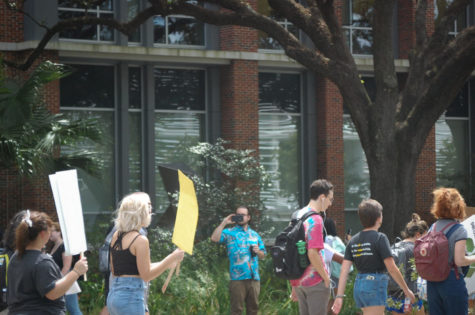OPINION | Students must pay attention to Southern anti-abortion laws
October 6, 2021

As a Louisiana native, I am not surprised by the recent Texas law which prohibits abortion access after six weeks. Abortion access has been under fire here for as long as I can remember. But for a lot of transplants, especially those inhabiting the more “progressive” pockets of the South, attitudes regarding abortion are a rude awakening.
Since Roe v. Wade was enacted, the state has passed 89 abortion restrictions. Some bills limit funding while others pressure hospital providers to enforce extremely strict admitting privileges so that dozens of women are denied care.
In the past 10 years, these laws have made some dreadfully successful strides. In 2014, there were five clinics that provided accessible abortion care in Louisiana. As of today, there are only three active clinics and only one in New Orleans.
New Orleans residents, natives and people with uteruses are directly impacted by the deterioration of abortion access. What if the New Orleans clinic is next to go? What if Louisiana follows in Texas’ footsteps and by the time women find out they are pregnant, it is too late to seek out childcare options? How much time and money will women sacrifice to get the care they need?
Many students at Tulane University may share these same concerns. Heightened attention towards reproductive rights in the South renders students hyper-aware of the impact laws could have on our community with such a high population of female-identifying undergraduate students.
The possible further restriction of abortion could impact more than just our Tulane community. Research shows that next to youth, abortion restrictions hurt women of color and low-income women the most. Many Tulanians have the financial resources and mobility to go to certain lengths to obtain an abortion. However, there are many women and people who can get pregnant who have no such access.
The city of New Orleans also has an extremely high population of reproductive-age citizens. As we saw this past Saturday at the Women’s March, many of said citizens have concerns about the future of their rights and are trying to fight back. Ahead of the United States Supreme Court’s official hearing to review abortion restrictions, many New Orleans residents gathered to protest over the weekend. The importance of abortion access to our community and the future of reproductive healthcare can not be overstated.
If students in New Orleans and Louisiana value reproductive rights, they have an obligation to make their voices heard. We cannot separate our status as students from the inevitability of being affected by laws passed in the South.
For more resources and support regarding abortion care and reproductive health, please visit the following sites:
Tulane Campus Health — Gynecological Services
Planned Parenthood New Orleans








Terry Breen • Oct 8, 2021 at 8:08 pm
Your column failed to mention the party that is the real reason for abortion restrictions: the unborn. It is an undisputed scientific fact that individual human life begins at conception, and therefore every abortion necessarily takes the life of at least one human, and more if there are twins.
Pregnancy is not a disease, it is a naturally occurring event that ends after 9 mos. Abortion is elective surgery and no more “health care” than having a nose job. It is evil.
Student • Oct 7, 2021 at 3:11 pm
Abortion is murder.